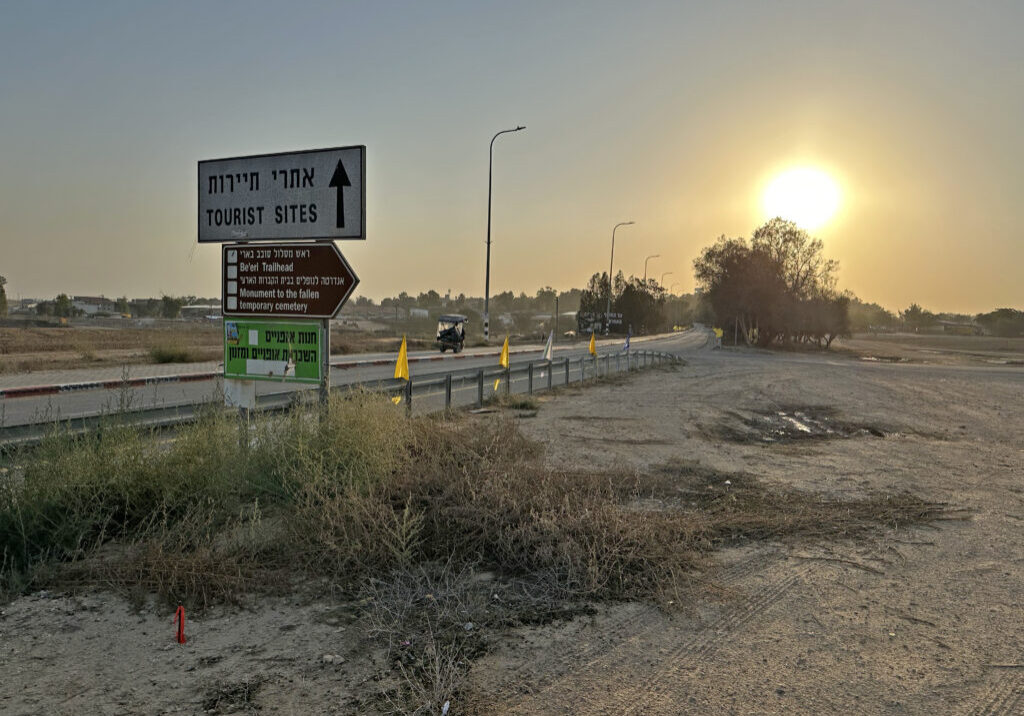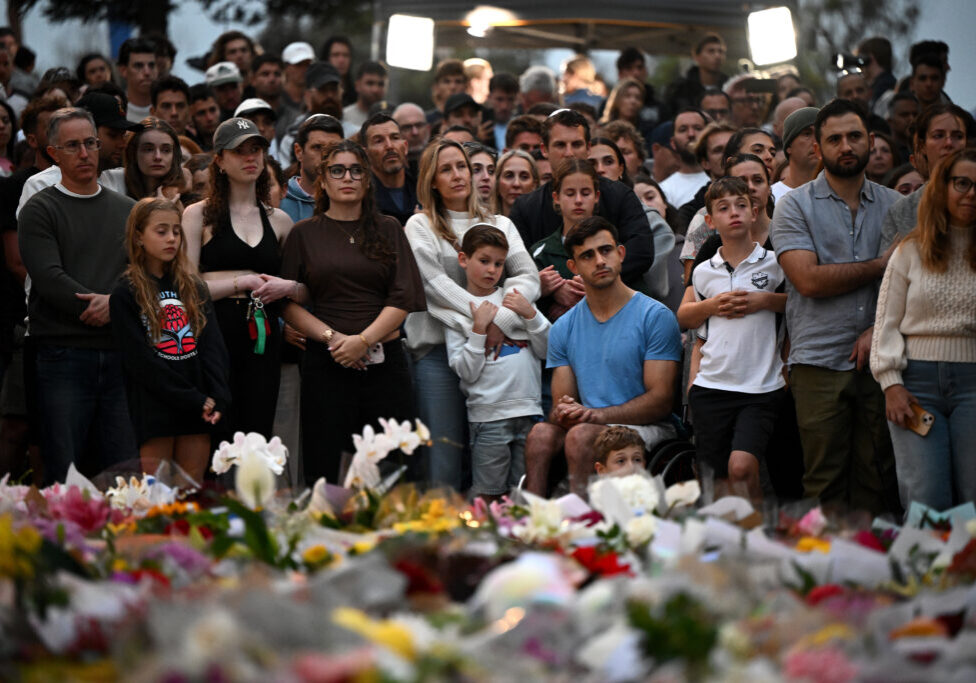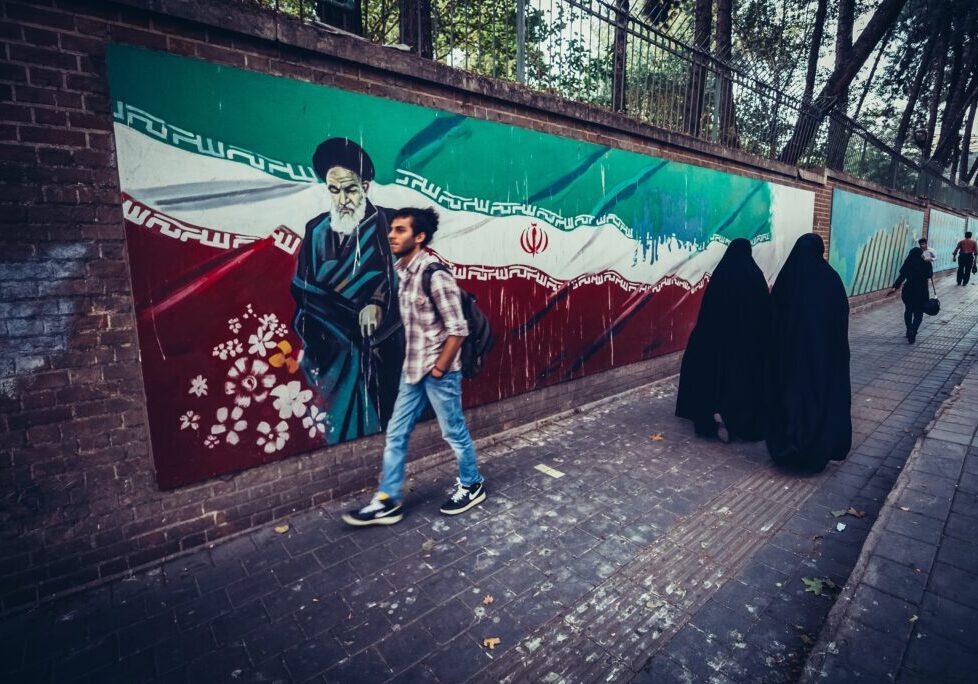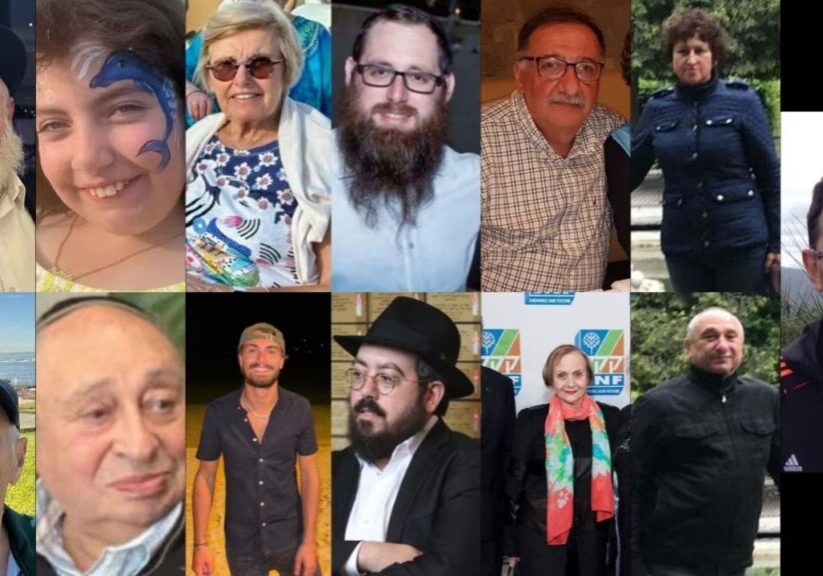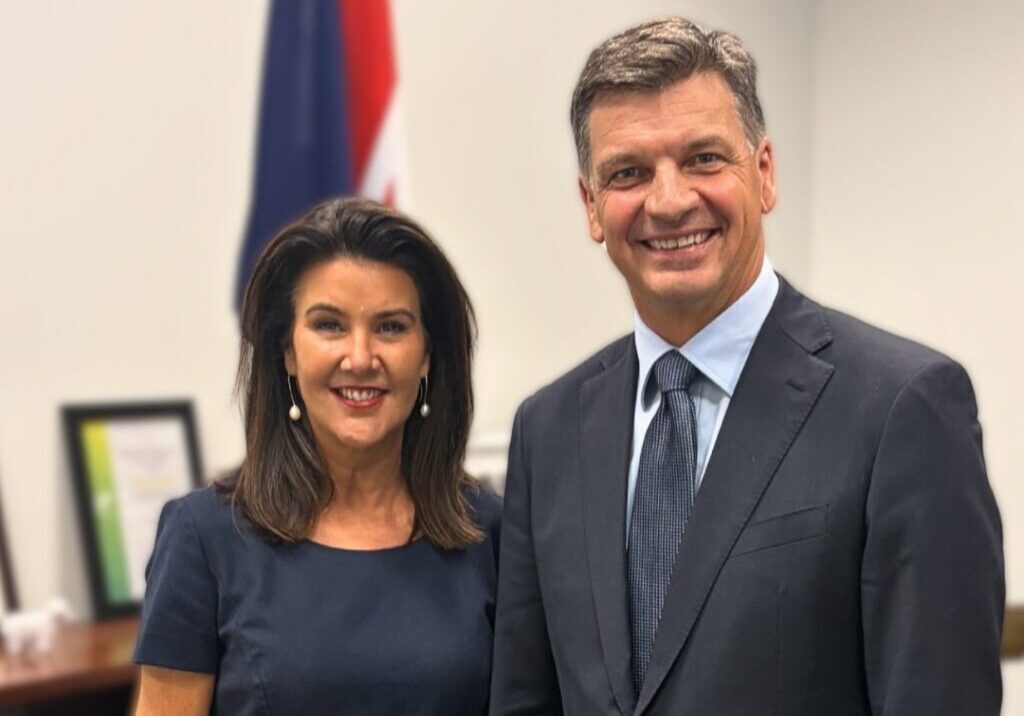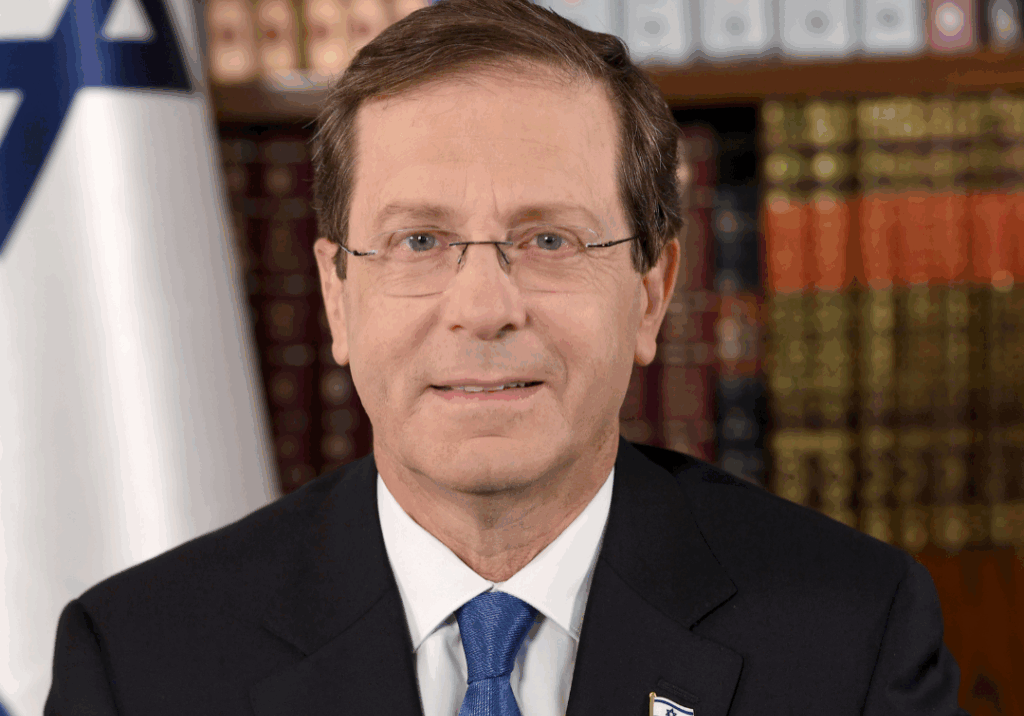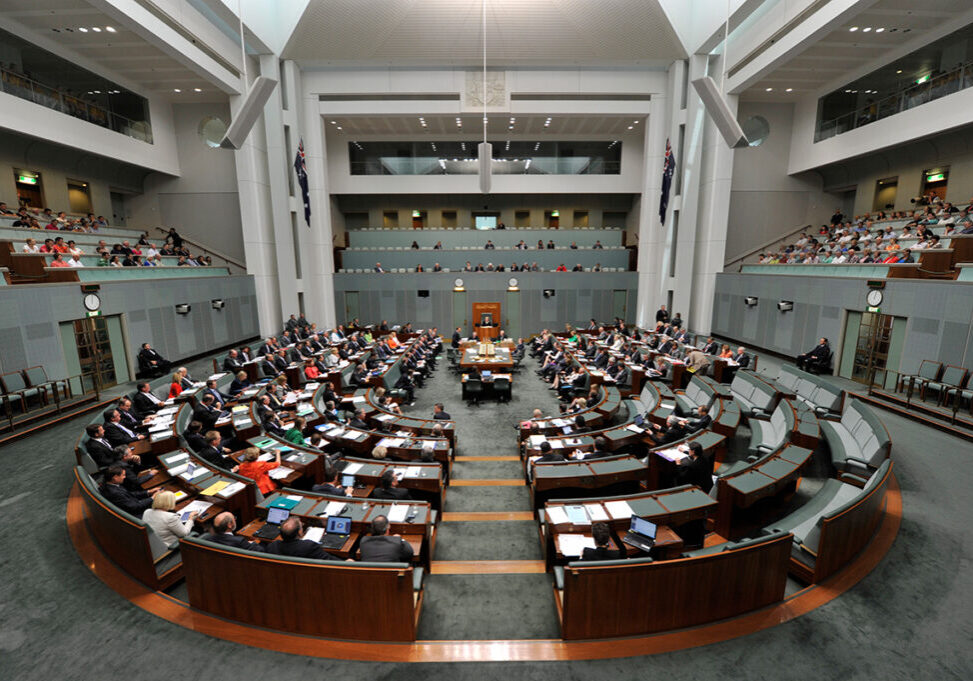RESOURCES
UN-healthy
May 28, 2020 | Ahron Shapiro, Allon Lee, Judy Maynard, Naomi Levin, Oved Lobel, Sharyn Mittelman
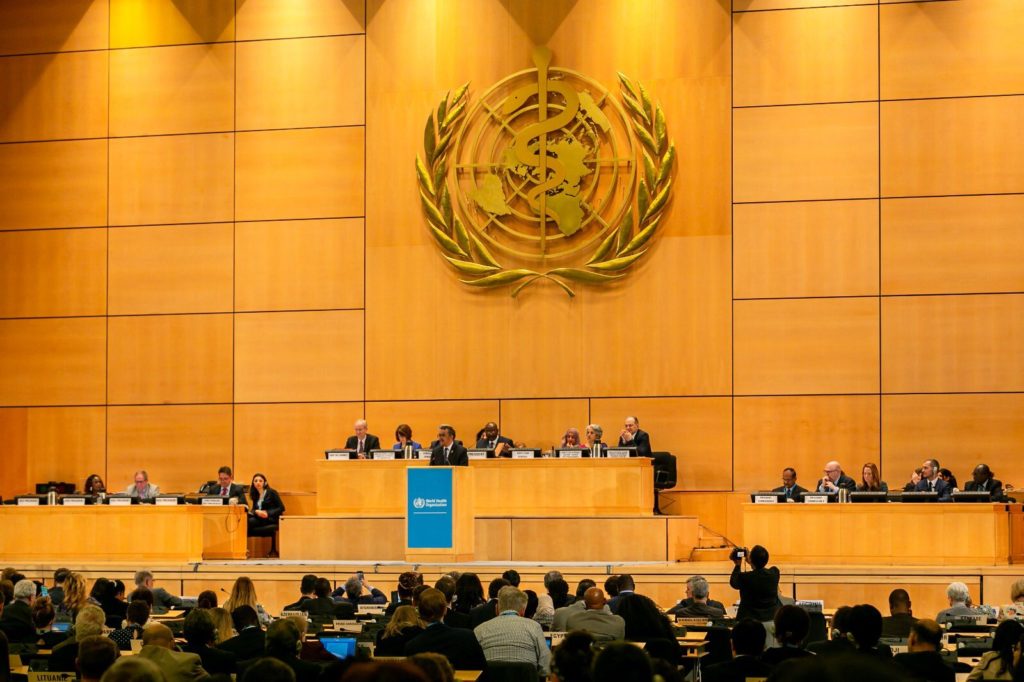
Australia was successful in using the WHO to push for an “impartial, independent and comprehensive evaluation” of the origins and handling of the coronavirus pandemic, despite initial strong objections from China.
However, much of the attention on the WHO has taken the form of criticism of its management of the pandemic, including allegedly allowing political deference to the Chinese government to colour its medical advice.
The organisation is clearly feeling embattled as a result and its Director-General Dr. Tedros Adhanom Ghebreyesus has been hitting back. Calling for unity, he asked critics to “quarantine politicising COVID”. Otherwise, he said, “we will have many body bags in front of us.”
Yet the reality is that, like almost all agencies of the United Nations, the WHO has been politicising its own work in a destructive way, contrary to the spirit of the UN’s founding documents, for decades.
The widespread political bias against Israel that has long pervaded the United Nations and its various agencies has been acknowledged even by successive UN secretaries general.
In December 2016, in his final briefing to the UN Security Council on the Situation in the Middle East, outgoing Secretary-General Ban Ki Moon stated: “During the past ten years, I have argued that we must never accept bias against Israel within UN bodies. Decades of political manoeuvrings have created a disproportionate volume of resolutions, reports and conferences criticising Israel.”
Ten years earlier, as he was preparing to farewell the organisation, Kofi Annan told the UN General Assembly “supporters of Israel feel that it is harshly judged, by standards that are not applied to its enemies – and too often this is true, particularly in some UN bodies.”
The current incumbent, Antonio Guterres, told the World Jewish Congress soon after he took office in 2017 that Israel must be treated like any other member state.
Unfortunately, while it is possible to discern some small positive changes in the relationship between the UN and Israel over recent years, the general pattern of exclusion and selective condemnation continues.
The WHO’s problems are essentially one example of these wider discriminatory and destructive tendencies across the UN as an organisation.
This long AIR feature story documents this pervasive tendency across numerous UN bodies, as manifested primarily by long records of discriminatory and factually dubious treatments of Israeli-Palestinian questions.
The World Health Organisation
by Judy Maynard
The WHO is one of 17 specialised agencies – autonomous international bodies that coordinate their work with the UN – other examples being the Food and Agriculture Organisation, the International Monetary Fund and the United Nations Educational, Scientific and Cultural Organisation (UNESCO). It was established in 1948, and its objective according to Article 1 of its constitution is “the attainment by all peoples of the highest possible level of health.”
The COVID-19 pandemic has focused international attention on the WHO as never before. Many have been disturbed by the appearance of this supposedly neutral body’s one-sided involvement in the politics of China-Taiwan relations, and apparent willingness to blindly follow China’s lead in offering incorrect medical and policy advice about the coronavirus, especially in January and February.
However, Director-General Dr Tedros Adhanom Ghebreyesus fended off suggestions the WHO was “China-centric”, saying “we are close to every nation, we are colourblind”. Another WHO official, Dr Mike Ryan, claimed “the WHO doesn’t interact in public debate or criticise our member states in public.”
These statements represent a patent disconnect from reality, as leaders and commentators from around the globe have noted.
The fact is that Israel, one of the WHO’s 194 members, is criticised each and every year at the World Health Assembly (WHA), the WHO’s governing forum. It is the only country to be the subject of an annual agenda item and condemnatory resolution.
Israel has been discriminated against since the WHO’s commencement.
With six regional offices, the Eastern Mediterranean region (EMRO) should have been Israel’s natural geographical group. However, after decades of effective exclusion by EMRO’s Arab members, Israel applied for and was granted membership in the European region in 1985.
Meanwhile, EMRO does include the Palestinian territories in the West Bank and Gaza.
As Ricki Hollander noted in the May edition of the AIR, EMRO reports and documents routinely absolve the Palestinian leadership of all responsibility and blame Israel for all shortcomings in Palestinian healthcare. EMRO effectively acts as a “disseminator of crude anti-Israel propaganda” which is in turn cited by other agencies such as Human Rights Watch and Amnesty International, she concluded.
Meanwhile, the WHA convenes once a year in Geneva, during which it always passes a resolution concerning “health conditions in the occupied Palestinian territory including east Jerusalem, and in the occupied Syrian Golan.” Such relentless solicitude for the health of Palestinians is in reality an exercise in Israel-bashing. No other country is ever the subject of any condemnatory WHA resolution. Thus the WHO allows Israel’s enemies to exploit an international platform devoted to human health to demonise Israel.
These resolutions play out in a historical context-free zone that is overtly political. For example, the resolution presented at the 65th WHA in 2012, demanded amongst other things “that Israel, the occupying power … immediately put an end to the closure of the occupied Palestinian territory, particularly the closure of the crossing points of the occupied Gaza Strip that is causing the serious shortage of medicines and medical supplies therein [and] abandon its policies and measures that have led to the prevailing dire health conditions.”
It also urged member states, intergovernmental organisations and NGOs “to call upon the international community to exert pressure on the Government of Israel to lift the siege imposed on the occupied Gaza Strip.”
A Palestinian Health Ministry annex to the resolution referred to the “enduring stranglehold of the Israeli blockade”, and “the apartheid wall that dismembers Palestinian territories and isolates them from the rest of the world”, which contribute “to making life miserable for all Palestinians.”
Historical realities airbrushed out of this picture include the fact that Gaza is not occupied by Israel but governed by Hamas; that essential medical supplies are not subject to the blockade (with some very rare exceptions for dual-use goods); and that the imposition of the blockade and the construction of the separation barrier are responses aimed at preventing terrorist attacks on Israel from the Palestinian territories.
The physical and mental health effects on Israelis from bombardment by tens of thousands of rockets from Gaza appear, in contrast, to be of no concern to the WHO.
For grotesque hypocrisy, however, it is difficult to surpass the submission tendered by the Syrian health ministry, which states: “Oppressed by the Zionist occupation, the population in the occupied Syrian Golan territories is still suffering from many health problems, while preferring the citizenship of their Syrian homeland and rejecting Israeli identity. In addition, the agony experienced by the Arab Syrian population in the occupied Syrian Golan as a result of the practices of the Israeli occupation authorities, cannot be ignored and runs counter to the population’s basic right of access to essential health care.”
This document, similar to other Syrian submissions accepted as annexes by the WHA, is dated April 2012, a year after the commencement of the Syrian Civil War. Bashar al-Assad’s regime’s true concern for the welfare of its people can be gauged by the regime’s willingness to subject them to gross human rights abuses, including chemical weapons attacks, in the course of a war that has cost hundreds of thousands of Syrians their lives, and made refugees of millions more.
Syria’s submissions are blatantly political exercises. Israel’s health ministry countered that the health situation of residents in the Golan, whether Druze or Jewish, was identical to the rest of the country, with full access to hospitals, and that no claims or complaints had been received from the Druze population in this regard. The ministry also pointed out, futilely, that “the Health Assembly is not the forum to discuss the narrative of an ongoing conflict nor the place to decide on political matters.”
The Palestinian annex to the 2016 anti-Israel resolution of the 69th WHA repeatedly used such words as “apartheid”, “racist” and “shocking”, and despite multiple mentions of Gaza and “the blockade” somehow failed to include a single reference to Hamas, which actually runs healthcare in Gaza. It noted that “traffic accidents cause numerous deaths and injury-related disabilities in Palestine,” 85% of which are due to human error, but tried to blame Israel for accidents occurring outside Palestinian towns and cities by claiming these were due to “Palestinians’ fear” of Israeli settlers or “occupation forces”.
That same year’s Syrian Health Ministry submission included amongst its fabrications such antisemitic tropes as “The Israeli occupation authorities continue to experiment on Syrian and Arab prisoners with medicines and drugs and to inject them with pathogenic viruses, causing them to develop diseases and medical conditions that are potentially fatal.”
The reality is of course very different. For over five years, from early 2013 until September 2018 – when Syrian dictator Bashar al-Assad regained control of south-western Syria – the IDF had provided humanitarian assistance to Syrian nationals living near the border. The initial aid, allowing injured Syrians to be treated in field hospitals, was ramped up considerably in 2016 with the introduction of “Operation Good Neighbour”. This included setting up a day clinic on the border which treated 7000 people, as well as a program admitting 5,000 Syrians to Israeli hospitals.
Another reality ignored in the WHA’s annual Israel-bashing exercise is that in the years from 1967 until 2000, life expectancy in the West Bank and Gaza Strip rose from 48 to 72. In the same period infant mortality fell from 60 per 1,000 live births to 15. The WHO’s own documents show that in 2017 life expectancy in “the occupied Palestinian territory” had further improved to 73.8. According to EMRO’s current figures, life expectancy in Syria is 63.8, in Jordan 74.3, in Egypt 70.5, in Yemen 65.3 and in Saudi Arabia 75, showing that life expectancy for Palestinians is comparable to or better than that of others in the region.
At the 70th WHA in 2017, several countries that ultimately voted in favour of that year’s anti-Israel resolution criticised one example of a politicised manoeuvre by WHO management, whereby a positive report on Israel and the Golan was hidden from the public due to pressure from the Assad regime, on the pretext of “time constraints”.
Speaking on behalf of Austria, Cyprus, the Czech Republic, Denmark, Estonia, Finland, Greece, Italy, Lithuania, Norway, Poland, Slovakia, and The Netherlands, the German representative welcomed Israel’s constructive approach, saying it was “regrettable” the report was not published which was “clearly due to the Syrian behaviour, which we can only condemn in the strongest terms. This is particularly deplorable in view of the abysmal health situation in other parts of Syria.”
At last year’s 72nd WHA, the representatives of Brazil, Canada, Germany, the UK and the US all spoke out against politicisation of the WHO and voted no to the annual anti-Israel resolution, along with Australia, the Czech Republic, Guatemala, Honduras and Hungary.
Yet with regard to the WHO’s anti-Israel bias, there is clearly still a long way to go despite these small signs of change.
The WHO has a vitally important part to play in advancing good health throughout the world – never more so than during the current COVID-19 global pandemic – and discharges much of its work effectively. Perhaps the controversy in which the WHO currently finds itself regarding claims of politicisation with regard to China will sharpen the focus of its members on much-needed reforms that will also affect WHO’s politicised behaviour on Israel.
However, it is hard to be too hopeful about such reform as long as it remains part of a UN system where such politicisation and bias are simply endemic.
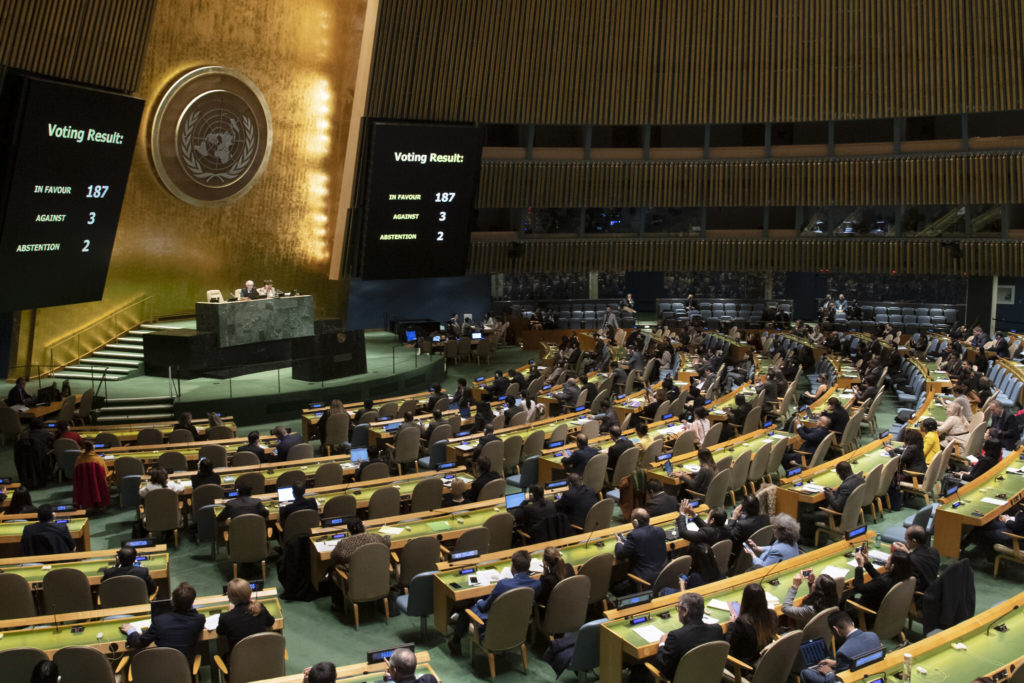
The UN General Assembly
by Allon Lee
Every November/December, the United Nations General Assembly (UNGA) passes approximately 20 one-sided resolutions which blame Israel for the Arab-Israeli conflict’s longevity and non-existence of a Palestinian state, or otherwise condemn Israel.
On no other conflict does UNGA lavish anything remotely approaching this amount of attention.
As the NGO UN Watch observed regarding the 2019 UNGA: “Resolutions on Israel: 18. Resolutions on Rest of the World: 7.”
The simplest explanation for this grossly biased reality is that there is an automatic majority at the UN that consistently and unquestioningly supports the claims of the Palestinian national movement. This includes the 57 member states of the Organisation of Islamic Cooperation and the even larger number of countries freed from colonial rule in the 1960s and 1970s which are sympathetic to the Palestinian cause as a kindred “national liberation struggle”.
Historically, both Australian Labor and Coalition governments have understood the problematic nature of these UNGA resolutions and opted to abstain or vote no on most of them.
Resolutions supporting UN anti-Israel propaganda
There are four resolutions, which Australia consistently opposes, which are especially critical to perpetuating the anti-Israel activities that permeate everything the UN does. These resolutions set up special bodies devoted to making the Palestinian cause a focus of anything and everything done anywhere in the UN’s vast bureaucracy. This would include encouraging bodies like the WHO to include a resolution on the Palestinians at every annual meeting.
These bodies are:
1. “The Special Committee to Investigate Israeli Practices Affecting the Human Rights of the Palestinian People and Other Arabs of the Occupied Territories” which produces a yearly report denouncing Israel’s security measures as violations of human rights but ignores the terrorism they are responding to.
2. “The Committee on the Exercise of the Inalienable Rights of the Palestinian People” which makes pro-Palestinian recommendations to the General Assembly, the Security Council and the Secretary-General.
3. “The Division for Palestinian Rights of the Secretariat”, a permanent bureaucracy within the Secretary-General’s Department which is supposed to “organise international meetings and conferences” and “prepare and widely disseminate publications and information materials on various aspects of the question of Palestine.” It also supports the above committee to organise the “International Day of Solidarity with the Palestinian People” held every year on November 29, the date UNGA voted in 1947 to accept the UN Partition Plan. The day is intended as a rebuke over the failure to create a Palestinian state in the seven decades that have elapsed since then.
4. “The Special Information Program on the Question of Palestine of the Department of Public Information of the Secretariat”, which is intended to work with media and other organisations to “heighten awareness of and support for the inalienable rights of the Palestinian people.”
Detached from reality
Many of the annual UNGA resolutions seem to exist in a parallel world where Palestinian terrorism is not a threat and Israeli security measures are only ever punitive, rather than preventive or legitimate.
For example, dozens of resolutions condemn Israel’s security fence on the West Bank as breaching international law, rather than a legal method of self-defence that was reluctantly built to respond to the terrorism of the Second Intifada, and which dramatically succeeded in preventing terror attacks, saving lives on both sides.
Resolutions such as “Palestine refugees’ properties and their revenues” call for restitution of property and income lost by Palestinians in 1948 but ignore the 900,000 Jews from Middle East countries who often were forced out of their home nations penniless when Arab governments began persecuting them after Israel’s creation.
Many of the resolutions contain clauses reflecting a reality that no longer exists, such as “Persons displaced as a result of the June 1967 and subsequent hostilities” which fails to take into account the fact that Palestinians have had their own functioning government on 40% of the West Bank since the mid-90s and practical control over all of Gaza since 2005.
While they are happy to condemn Israel, none of the resolutions take note of the Israeli offers made in 2000, 2001 and 2008 to create a Palestinian state on almost all the disputed land, which the Palestinian Authority rejected.
One of the more pernicious resolutions is “Jerusalem,” which condemns Israel’s control over the city’s eastern half captured in 1967, where the Old City is located. The resolution criticises supposed “changes [to] the status of the holy city of Jerusalem in contravention of international law”, and only refers to the Temple Mount – the holiest site in Judaism – using the Arabic name of “Haram al-Sharif”.
This resolution, and others like it, absurdly say it is illegal for any Israeli Jews to live in the city from which they were ethnically cleansed in 1948 by Jordanian forces, after which the ancient Jewish quarter was demolished, including dozens of synagogues. The resolution falsely suggests that Israel impedes religious freedom in Jerusalem, when in fact Christians and Muslims have administered their own holy sites there since 1967.
Recognising the UN’s inherent bias
The way that Israel is being unfairly treated by UNGA was underlined by a surprising source on Nov. 13, 2013.
As the plenum began rubber-stamping nine anti-Israel resolutions, a hot mic incident caught a UNGA interpreter complaining to her colleagues, “I mean, I think when you have five statements, not five, like a total of ten resolutions on Israel and Palestine, there’s gotta be something, c’est un peu trop, non? [It’s a bit much, no?] I mean I know… There’s other really bad shit happening, but no one says anything, about the other stuff.”
One of the resolutions in question called for Israel to hand over the Golan Heights to Syria. At the time, civil war in Syria had been raging for two and a half years and more than 120,000 Syrians had been killed in the conflict.
Yet video footage showed UN delegates laughing at the interpreter’s comment, and then voting overwhelmingly in favour of the nine resolutions.
Another example of UNGA’s selective moral outrage was its shameful refusal in 2018 to pass a simple resolution condemning the Palestinian terrorist group Hamas, whose commitment to Israel’s destruction contravenes the UN charter’s central goal of “develop[ing] friendly relations among nations based on respect for the principle of equal rights and self-determination of peoples.” A resolution was instead passed calling for peace but which, true to form, still contained implied criticism of Israel.
As Nikki Haley, then US Ambassador to the UN, said to the plenum prior to the vote, “The General Assembly has passed over 700 resolutions condemning Israel. And not one single resolution condemning Hamas. That, more than anything else, is a condemnation of the United Nations itself.”
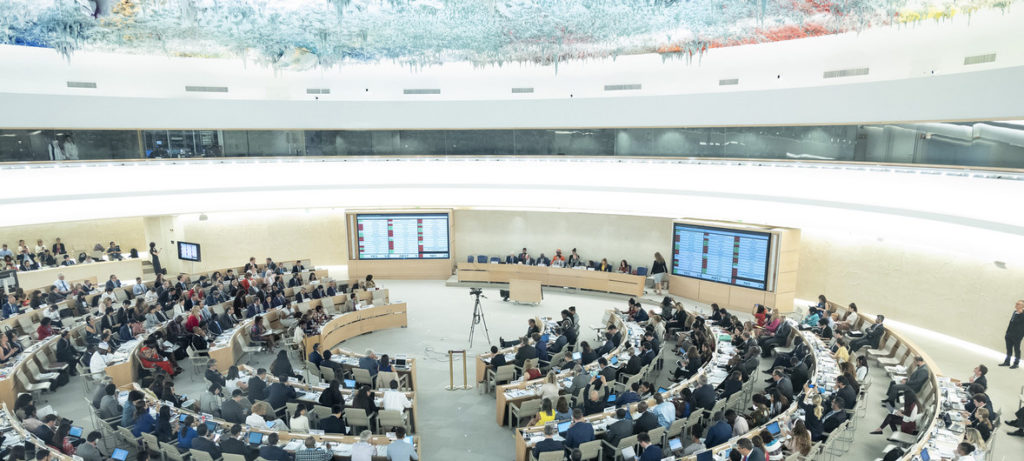
The UN Human Rights Council
by Sharyn Mittelman
The UN Human Rights Council (UNHRC) was established with the intention that it would be the UN body responsible for promoting and protecting human rights around the world. Based in Geneva, it is comprised of 47 UN Member States elected by the UN General Assembly based on geographic distribution (African States: 13 seats, Asia Pacific States: 13 seats, Latin American and Caribbean states: eight seats, Western European and other States: seven seats, Eastern European States: six seats).
The UNHRC has a number of functions: through the Universal Periodic Review it is supposed to review the human rights records of all UN members; the “Advisory Committee” serves as the Council’s think tank; a complaints procedure enables individuals and organisations to raise alleged human rights violations; and it also has “UN Special Procedures” which include special rapporteurs, special representatives, independent experts and working groups that report on issues or human rights situations in specific countries.
The UNHRC was established in 2006 to replace the UN Commission on Human Rights, which was criticised for allowing countries who were human rights violators to dominate proceedings and establish a culture of impunity for many rights violators based on political considerations.
Yet ironically, the UNHRC seems to have suffered the same fate. Despite the UN website stating that with “membership on the Council comes a responsibility to uphold high human rights standards”, its current membership includes numerous states with poor human rights records including Qatar, Venezuela, Afghanistan, the Philippines, Sudan and Bahrain. Meanwhile, member states seeking election to the UNHRC this year include leading human rights offenders Saudi Arabia and Russia.
Like its predecessor, the UNHRC has been accused of being used as a political tool which prioritises the interests of member states ahead of any genuine commitment towards improving human rights around the world.
This was exemplified on March 12, when the UNHRC adopted a report on its five-year review of Iran’s human rights record, in which the vast majority of UN member-states who commented – 95 out of 111 – praised Iran’s human rights record. Iran’s record was applauded despite the fact the Teheran is refusing to allow the UN’s Special Rapporteur on Iran, Javaid Rehman, to visit the country to investigate its human rights conditions.
This is the same Iranian regime whose security forces last November killed around 1,500 Iranians protesting against the regime, which persecutes women for refusing to wear a veil, which executes child offenders, which discriminates blatantly against minorities such as the Bahai, and which has imprisoned foreigners on false charges to be used as hostages to further Teheran’s foreign policy, such as Australian-British Melbourne University academic Kylie Moore-Gilbert.
The UNHRC praise of Iran stands in contrast with reports from human rights watchdogs like Amnesty International and Human Rights Watch which have documented serial and pervasive abuses of human rights in Iran.
The praise for Iran is not particularly unusual in UNHRC human rights review processes – for instance, in Qatar’s review in May 2019, 97 out of 104 countries, or 93%, expressed praise for that country’s dubious human rights record.
The politicisation of the UNHRC is most evident from its systemic bias against Israel and overwhelmingly disproportionate focus on the Jewish state, which appears to effectively shield other countries from having their own human rights problems subjected to serious scrutiny.
The Council is notorious for its Agenda Item 7, the only permanent agenda item that targets a single state: Israel. All other human rights allegations against all other UN member states are debated under Agenda Item 4. Item 7 demands that alleged Israeli human rights abuses must be debated at each and every meeting of the UNHRC, regardless of what is happening on the ground in Israel or anywhere else. This agenda item typically results in several resolutions condemning Israel at each of the thrice-yearly sessions of the UNHRC – often more resolutions than those targeting the rest of the world’s countries combined.
In February, the UNHCR published an unprecedented “blacklist” of 112 businesses operating in the West Bank and east Jerusalem, pursuant to a resolution the Council passed in 2016. The UNHRC has never released similar lists of companies operating in occupied territories, such as Turkish-occupied Cyprus or the occupied Ukrainian territories, and the Council itself offered no argument that what these overwhelmingly Israeli companies were doing was either illegal under international law or involved any form of human rights abuse. The obvious goal of the list was to harm the companies on it by encouraging boycotts, thus assisting the goals of the anti-Israel Boycott, Divestment and Sanctions (BDS) movement.
In June 2018, the US announced that it would leave the UNHRC, with then US Ambassador to the UN Nikki Haley condemning the “hypocrisy” of the UNHRC and its “unrelenting bias” against Israel. Israeli Prime Minister Binyamin Netanyahu welcomed the move, referring to the Council as “a biased, hostile, anti-Israel organisation that has betrayed its mission of protecting human rights.”
Australia is currently a member of the UNHRC (from 2018 to 2020) and it has taken a different approach. Instead of boycotting the UNHRC, it has consistently called out bias against Israel from within the Council. For example, Australia’s Foreign Minister Marise Payne told the Council on Feb. 29, 2019: “As has been our longstanding position since the inception of the Human Rights Council in 2006, for over 12 years, Australia opposes in principle the existence of Item 7 of the Agenda of the Council.” She added, “It is our firm view that a separate agenda item focusing on a single country situation – in this case Israel – is inappropriate. It does not occur in any other context, for any other country.”
Yet the UNHRC is likely to continue to suffer from severe hypocrisy, as membership is largely based on geographic blocs rather than the commitment to human rights of the member-states elected to the Council. Thus, even though more and more Western democracies like Australia are today voting against all resolutions introduced under Agenda Item 7, they are almost always outvoted.
The UNHRC could be an important institution for calling out human rights abuses if reforms were made and democracies were able to hold human rights violators to account. But at the moment, who is condemned and who is praised by the Council are often politicised decisions, based on the interests of the member-state governments involved, many of which are themselves serial abusers, and has very little to do with objective human rights records.
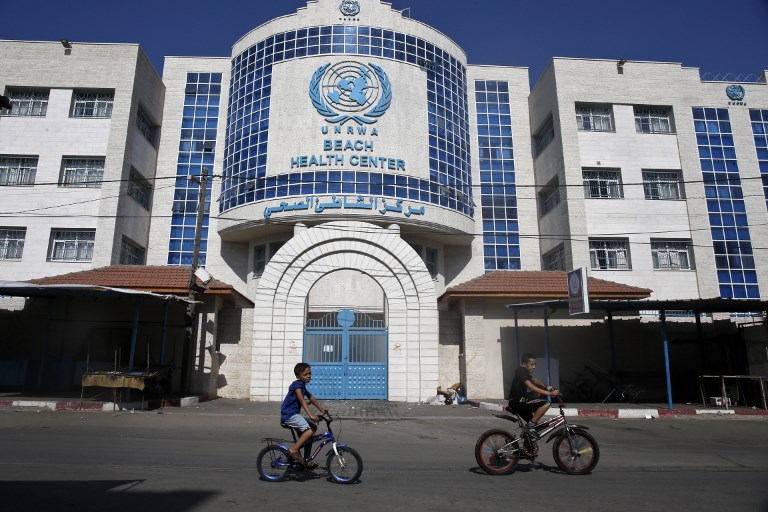
UNRWA
by Naomi Levin
In April this year, a brief media release revealed a significant but largely ignored situation: military equipment had been found in a United Nations-owned building in Gaza.
Given the Israeli military has not maintained a presence in Gaza since 2005, the only forces this equipment could belong to are those of Gaza-based terrorist groups, such as Hamas or Palestinian Islamic Jihad.
The building was a vacant school administered by the United Nations Relief and Works Agency for Palestine Refugees (UNRWA). The reason it was largely ignored was that this was nothing new.
In the scheme of UNRWA scandals, this one ranked fairly low – only one hand grenade and one military vest were uncovered.
UNRWA was established by the UN General Assembly in 1949 to assist Palestinians displaced in the 1948 War of Independence. Its mandate is regularly updated by the General Assembly, most recently in late 2019. What is fascinating about UNRWA is that when it began operating in 1950, it assisted 750,000 people. Today, it provides services to 5.6 million people.
Herein lies the first major problem with UNRWA. Unlike the United Nations’ only other long-term refugee agency – the United Nations High Commission for Refugees (UNHCR) – UNRWA does not seek to resettle Palestinians. It continues to treat Palestinians who live in Gaza, Bethlehem, Ramallah, that is, Palestinian territories governed largely by Palestinian leadership, as refugees. Uniquely among all the refugee populations in the world, UNRWA also grants refugee status to the descendants of the original 750,000 Arabs who became refugees after 1948 regardless of whether they were born in, live in or carry the passport of another country.
To give just one example, 2.2 million Jordanian citizens – many of whom were born in Jordan, travel on Jordanian passports and own property in Jordan – are classified as Palestinian refugees by UNRWA and can access UNRWA services, such as medical clinics and financial support. This model has been described by the current US Administration as “simply unsustainable”.
What does UNRWA intend to do with those 5.6 million Palestinian refugees? Support their wishes to resettle in sovereign Israeli territory under the so-called Palestinian “right of return” by maintaining them as refugees until this becomes possible. Given Israel has a current total population of around nine million, approximately three-quarters of whom are Jewish, implementing this “right” would erase Israel’s status as a Jewish state.
Supporters of a Palestinian “right of return” argue that this “right” is guaranteed by UN resolutions. This is not correct. The non-binding resolution to which they refer (UN General Assembly Resolution 194), does not specify that Palestinians, as well as their descendants, be granted the right to return to their pre-1949 homes. In fact, this resolution maintains that refugees “wishing to … live at peace with their neighbours” should be permitted to return, or be provided with compensation, “at the earliest practicable date”.
UNRWA’s operations support a “right of return” which is far more comprehensive and categorical than anything the language of that resolution supports.
In their recently published book The War of Return: How Western Indulgence of the Palestinian Dream has Obstructed the Path to Peace, Einat Wilf and Adi Schwartz write that the Palestinian demand for a right of return reflects a belief about the Palestinian relationship with the land and a deeply held unwillingness among many Palestinians to share any part of the land with Jewish inhabitants. They write, “the UN structural support and Western financial support for these Palestinian beliefs has led to the creation of a permanent and ever-growing population of Palestinian refugees, and what is by now a nearly insurmountable obstacle to peace.”
Wilf and Schwartz specifically point the finger at UNRWA and argue that, given its focus on a Palestinian right of return, and given the incompatibility of a Palestinian right of return and lasting peace between Israelis and Palestinians, UNRWA should be dismantled.
Returning to the discovery of weapons in a disused UNRWA facility, this find was a reminder of a long history of incidents and activities pointing to a lack of neutrality and complete politicisation by the UN agency. UNRWA has taught anti-Israel and antisemitic lessons and glorified violent jihad in its schools; it has failed to prevent UNRWA facilities from being used by terrorists to store – and even fire – weapons, and it has employed numerous members of Hamas, a group which does not recognise Israel’s right to exist.
Australia, the UK, the EU and other countries that donate to UNRWA have politely encouraged UNRWA to clean up its act. However this encouragement has not been coupled with threats of penalties for non-compliance, so egregious examples of UNRWA’s bias and destructive activities against Israel continue.
As mentioned earlier, UNRWA’s mandate was recently renewed and the “temporary” agency will continue operation until at least 2023. Israel and the United States were the only countries that voted against UNRWA’s continuation. However, there is growing pressure on some donor governments – particularly Western governments – to reconsider their financial support for UNRWA, or to at least make that support conditional.
Some, like Wilf and Schwartz, would like to see UNRWA disbanded completely. They write: “Officially, Western states are committed to advancing an Israeli-Palestinian peace agreement based on a two-state solution: a Jewish state of Israel and an Arab state of Palestine. But by supporting UNRWA, they are simultaneously nurturing the Palestinians’ demand to return to Israel in complete contravention of this stated policy.”
They do not see dismantling UNRWA as an excuse to cease all services to vulnerable Palestinians. Instead, this should involve transferring care for those in crisis situations in Syria, in particular, but also Lebanon, to local agencies, or even the UNHCR; ceasing assistance to “refugees” who are also full Jordanian citizens; handing over UNRWA service delivery in West Bank and Gaza cities and towns to the Palestinian Authority; and ending support for the legally-baseless Palestinian “right of return” to sovereign Israeli territory.
Wilf and Schwartz – and others – argue that a first step towards dismantling UNRWA is for major funders, including Australia, to use their leverage to demand change. With the US no longer providing funds to UNRWA, the EU, Canada, Australia and Japan are UNRWA’s key international supporters.
Like so many other UN agencies, politicised anti-Israel biases pervade UNRWA – but in a way particularly inimical to any realistic hopes of a two-state Israeli-Palestinian peace resolution. Unlike other agencies though, these challenges probably cannot be resolved through political or leadership change to return the agency to its original function and purpose. With UNRWA, these problems have become existential, and go to the heart of the organisation itself.
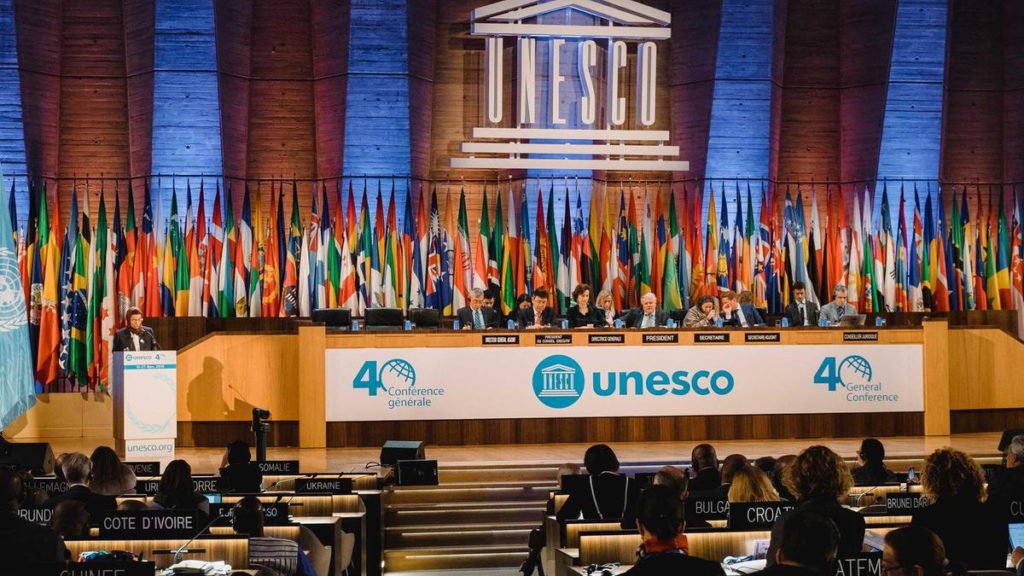
UNESCO
by Oved Lobel
The United Nations Educational, Scientific and Cultural Organisation (UNESCO) is involved in many vital projects around the world. It is run largely by a 58-member Executive Board which, like the UNHRC, is divided up and chosen by regional groups.
Unfortunately, like almost all UN bodies, it is so fundamentally anti-Israel that it ignores its own advisory bodies and even its own Director-General to pass anti-Israel resolutions, of which it has adopted dozens since 2009. Israel’s storied history with UNESCO predates the accession of the “State of Palestine” as a member state in 2011, although that controversial act led to the cut-off of US funding. The organisation’s ongoing biases and financial mismanagement ultimately led to the withdrawal of both the US and Israel from it in 2017.
According to UN Watch, “Between 2009-2014, UNESCO adopted 46 resolutions against Israel; 1 on Syria; and none on Iran, Sudan, North Korea, or any other country in the world.”
It even elected the murderous Syrian regime of Bashar al-Assad to its human rights committees in 2011, and despite a campaign to undo the farce, including a statement by then Director-General Irina Bokova that she “does not see how Syria can contribute to the work of the committees,” it was not immediately revoked. Iran and Sudan were also elected to leading positions in UNESCO bodies in 2015.
In July 2012, UNESCO’s World Heritage Committee secretly voted to place the Church of the Nativity in Bethlehem on its list of endangered heritage sites, with its location noted as “Palestine.” The PA’s petition to use emergency measures to have the site classified as endangered was not only rejected by Israel, but by all three of the Christian custodians of the church and both of the two UNESCO specialist committees which examined the proposal.
Despite the almost universal rejection of the Palestinian request, members still voted to accept it and the site was only removed from the endangered list in July 2019, demonstrating the comprehensive politicisation of UNESCO.
But perhaps the final straw in UNESCO’s ongoing campaign to delegitimise Israel came in 2016, when UNESCO passed the “Occupied Palestine Resolution” that not only denied any Jewish connection to the Temple Mount and the Western Wall – referring to them only by their Islamic names – but also accused Israel of planting fake Jewish graves in Muslim cemeteries in Jerusalem, among other ridiculous slanders. Even UNESCO Director-General Bokova repudiated her own organisation’s resolution, saying, “I am concerned about the way physical violence is being associated with symbolic violence, as well as the will to erase history and instrumentalise culture.”
UNICEF
by Ahron Shapiro
UNICEF, the United Nations Children’s Fund, like so many other UN departments, is disproportionally invested in projects in Palestinian-ruled areas. These projects often promote, directly or indirectly, the Palestinian narrative.
However, UNICEF is considered to be one of the few UN bodies that also has helped Israeli children, both historically and in recent years, including those affected by Palestinian violence.
In 2008, the Anti-Defamation League defended UNICEF in a briefing as “not ‘anti-Israel’, noting that before 1965, when it became a UNICEF donor country, Israel had been a UNICEF aid recipient and was on excellent terms with the organisation on all levels.
“Since that time, UNICEF has provided assistance and aid to Israeli children in emergency situations”, the 2008 briefing continued. “For example, in 2006, during the Second Lebanon War, the Canadian and the US Committees for UNICEF donated $200,000 to a program created to assist children deal with the psychological trauma they endured from the war… UNICEF has a program to help children in Sderot deal with their psychological suffering due to the barrage of rocket attacks on that town.”
Over the past decade, UNICEF has singled out Israel for criticism over its treatment of Palestinian minors arrested by Israeli security forces, but has also been castigated by Palestinian political advocates for its willingness to work closely with the IDF in the interests of improving conditions facing Palestinian teenagers in military detention.
Conclusion
It can be argued that mistakes made by the WHO as the result of its politicised decisions to defer to Chinese claims and interests in the early days of the coronavirus crisis cost lives. Poorly informed, delayed and politicised WHO pronouncements and decisions potentially meant the pandemic spread more quickly and widely than would have been the case if the WHO had taken stronger steps to warn nations earlier, and urged nations to quarantine contact with travellers from Wuhan or other affected parts of China before the virus had spread around the globe so extensively.
But these errors were not simply a matter of problems with the decision-making or governance at the top of the WHO. These were arguably all but inevitable because the WHO is part of the UN system, where, as this feature has shown by using the example of Israel, politicisation and political biases are so widespread across virtually all agencies and bodies as to be essentially baked into the whole sprawling network of UN organisations.
The UN was created to fulfil humankind’s highest ideals, and while it has always fallen far short of those ideals, it still does much valuable work. Inquiries into the errors of the WHO in handling the coronavirus crisis should be an occasion not only to reform that important organisation but to look at the serious problems with the whole UN system of which it is a part. There is so much more that the UN system can do to live up to its founding ideals if the curse of endemic politicisation and bias which currently afflicts virtually all its activities can be lifted, or, at the very least, ameliorated.
Tags: Israel, Palestinians, UNHRC, UNRWA, United Nations, WHO


